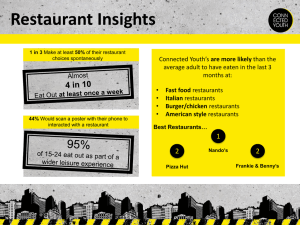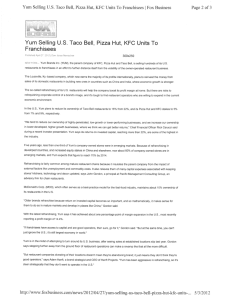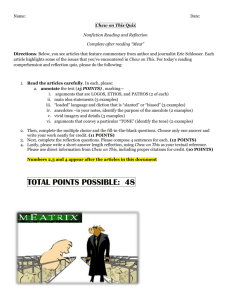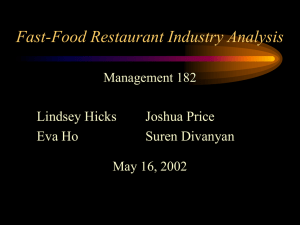Presenters for McDonald`s
advertisement
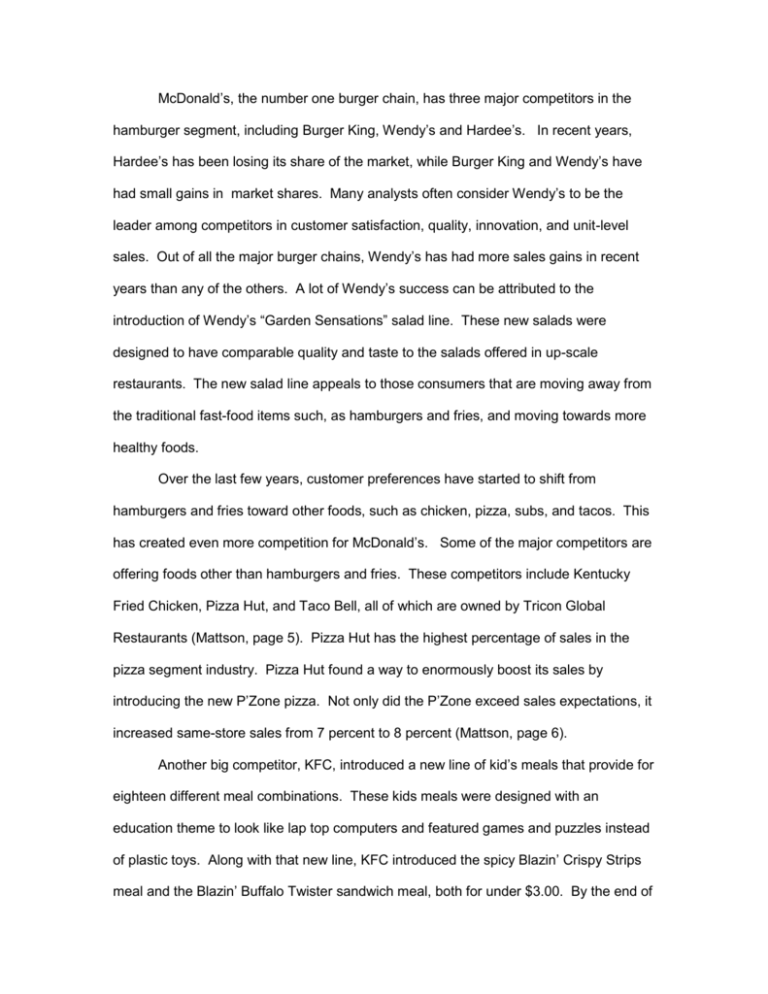
McDonald’s, the number one burger chain, has three major competitors in the hamburger segment, including Burger King, Wendy’s and Hardee’s. In recent years, Hardee’s has been losing its share of the market, while Burger King and Wendy’s have had small gains in market shares. Many analysts often consider Wendy’s to be the leader among competitors in customer satisfaction, quality, innovation, and unit-level sales. Out of all the major burger chains, Wendy’s has had more sales gains in recent years than any of the others. A lot of Wendy’s success can be attributed to the introduction of Wendy’s “Garden Sensations” salad line. These new salads were designed to have comparable quality and taste to the salads offered in up-scale restaurants. The new salad line appeals to those consumers that are moving away from the traditional fast-food items such, as hamburgers and fries, and moving towards more healthy foods. Over the last few years, customer preferences have started to shift from hamburgers and fries toward other foods, such as chicken, pizza, subs, and tacos. This has created even more competition for McDonald’s. Some of the major competitors are offering foods other than hamburgers and fries. These competitors include Kentucky Fried Chicken, Pizza Hut, and Taco Bell, all of which are owned by Tricon Global Restaurants (Mattson, page 5). Pizza Hut has the highest percentage of sales in the pizza segment industry. Pizza Hut found a way to enormously boost its sales by introducing the new P’Zone pizza. Not only did the P’Zone exceed sales expectations, it increased same-store sales from 7 percent to 8 percent (Mattson, page 6). Another big competitor, KFC, introduced a new line of kid’s meals that provide for eighteen different meal combinations. These kids meals were designed with an education theme to look like lap top computers and featured games and puzzles instead of plastic toys. Along with that new line, KFC introduced the spicy Blazin’ Crispy Strips meal and the Blazin’ Buffalo Twister sandwich meal, both for under $3.00. By the end of the fiscal year of 2001, KFC was the leader in same-store sales over Taco Bell and Pizza Hut, with a growth of 3 percent (Mattson, page 6). In 2001, Taco Bell decided to operate under a new strategy. Taco Bell began to offer higher quality products at non-discounted prices, like the Grilled Stuffed Burrito. This change in strategy led to an extraordinary increase in sales and a 19 percent increase in profits. Taco Bell’s success with higher-priced menu items proves that the brand can afford to raise the average meal price without risking the loss of customers, while at the same time bringing in new customers who prefer better quality (Mattson, page 7). A growing trend cutting into McDonald’s revenues is the emerging of upscale fast-casual restaurants. Restaurants like Boston Market, Panera Bread Company, and Atlanta Bread Company offer upscale fast-food services in nicer, more traditional restaurant environments. These new upscale fast-casual restaurants offer consumers comfortable surroundings, great food, and speedy service. The trend for better fast food (through fast-casual restaurants) is growing at an estimated pace of 15 to 20 percent per year, compared to the lagging but mature fast-food industry of 2 percent per year (Mattson, page 2). Other chains that are cutting into McDonald’s revenues are supermarkets, convenience stores, and gas stations that offer microwave meals and meals to go. Supermarkets, such as Ukrops, provide a café with full menu meal selections for consumers. Sheetz is now offering MTO (made to order) food options that can be ordered by computer from the gas pumps. With growing developments towards healthier eating habits, less eating out, and upscale fast-food and grocery stores, not only does McDonald’s have a need to be scared, but so do other fast-food competitors. McDonald’s is going to have to focus its efforts on introducing new healthier products including non-traditional fast-food items. McDonald’s also needs to improve the quality of its food to compete in the changing market.


